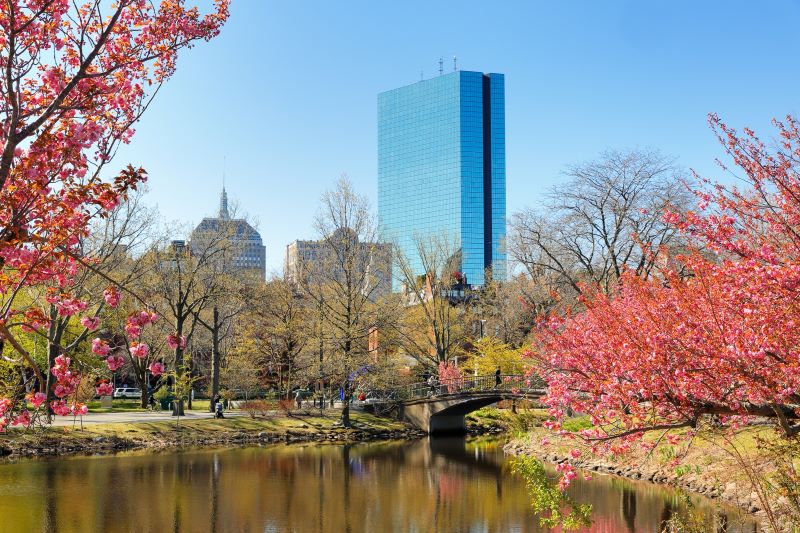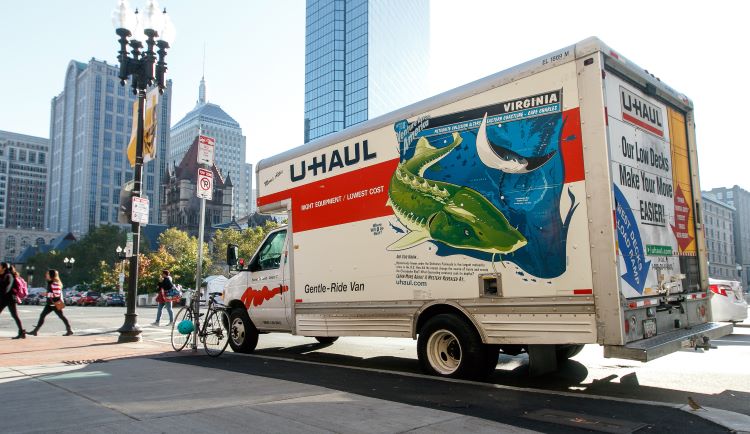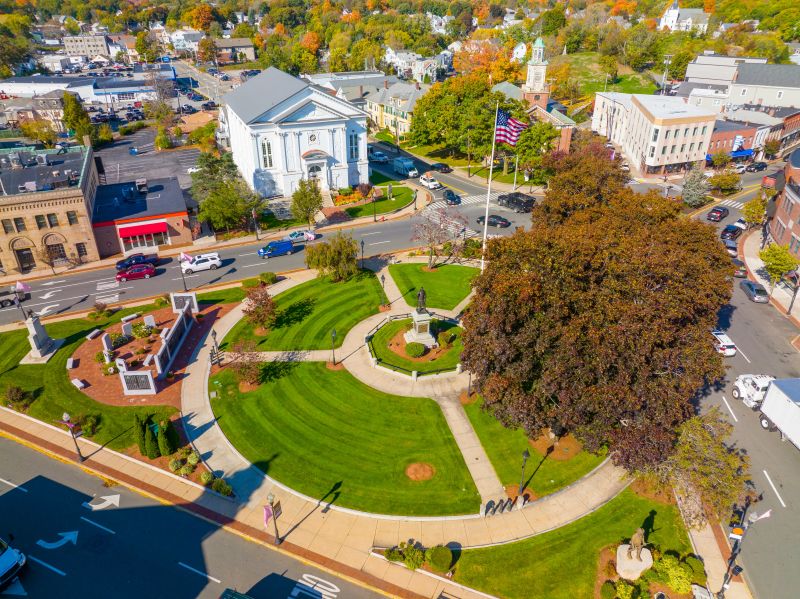
Maybe you’re looking to move to the city proper from a nearby suburb. Maybe you’re looking at changing neighborhoods, moving out of student housing and living off-campus, or simply finding a new pad within Boston, one that better suits your needs. Or maybe you’re considering a move to The Hub, and wondering whether or not to make the jump? For the latter group, there’s one big question that needs answering before we go any further.
Should I Move to Boston?
It’s no stretch to say that Boston is one of the great American cities and a phenomenal place to live. Catch any Bostonian in the middle of a rant about whatever’s frustrating them today, and ask if they’d rather move somewhere else. The look of “are you kidding me?” says it all: Bostonians love their city, full stop.
Opinions, of course, are subjective. What is not, is the cost of living in Boston. And like anything else, it’s all relative. Real estate in Boston is more expensive than in some other parts of the country, but a little perspective goes a long way. Yes, rent is higher: but so are salaries.
Additionally, when compared to other major cities, Boston actually represents serious value. World-class health care, rich history and culture, a thriving arts scene, and of course, one of the world’s most passionate sports fanbases, the perks of living in Boston are too many to list here (for example, we haven’t even touched on the award-winning culinary scene).
 Boston is a Hub for Many Specialized Industries
Boston is a Hub for Many Specialized Industries
If you’ve got employment prospects lined up, don’t be afraid to pull the trigger on a move to Boston. If you don’t, you should know there are many employment opportunities in fields that continue to grow every year. For example, world- class healthcare such as Boston’s requires a variety of specialized healthcare professionals. There is, of course, a strong demand for nurses and doctors but also an increasingly large demand for other non- medical positions such as healthcare administrators. The healthcare industry is one of the fastest growing in the country, and, according to Boston College, will be the largest US industry by 2026. They state the average annual salary for healthcare administrators in the Greater Boston area is $148,930- this would allow for a great quality of life in Boston.
Boston-Cambridge has also been called the world’s top biotech hub, thanks in large part to the collaboration that can exist across sectors including academia, government, business, and healthcare. There are over 1,000 bio-tech companies in Greater Boston, and companies have access to top talent from 122 colleges and universities. The number of jobs available is growing- $4.3 Billion were secured in the first quarter of 2021, after $5.8 Billion were raised in all of 2020. That shows promise that many job opportunities will continue to become available.
Finding the Best Apartments for Rent in Boston
Want to know a secret? The “one weird trick” to find the best apartments in Boston? It’s simple:
There is no such thing. What constitutes the best apartments for rent in Boston depends on you: your needs, your wants, your budget. Fortunately, Boston offers a wide range of options — even more, if you’re looking at the greater Boston metropolis — so finding the right apartment frequently comes down to knowing precisely what it should look like.
 How Big of an Apartment Should I Get?
How Big of an Apartment Should I Get?
Before anything else, you’ll want to figure out how much apartment you’re going to need. A single professional living on their own and exploring a minimalist philosophy can get by with fewer square feet than a big family, or multiple college students. If you work from home, you may want separate office space, and if you plan on entertaining guests, they’ll need to fit.
Figure out what you need, while leaving space for what you want. Apartments in Boston range from cozy studios to sprawling 5-bedroom — or more — setups, so there’s an option out there with the right amount of space. Obviously, there’s a tradeoff between square footage and affordability, but splitting rent with roommates offers luxurious apartment living on a much more reasonable budget. Keep in mind that the closer you live to downtown Boston the greater the chance your apartment will be smaller at the same price point than if you looked in other areas. Many people are willing to give up space and condition of the apartment to avoid commuting greater distances. If you take your time and get clear on what it is that is most important to you, it’s time to make your move. Keep in mind the first thing to figure out is your actual budget. And if you’re not sure, using an online rent calculator can help you determine what you can responsibly afford.
Which Boston Neighborhood Should I Live in?
With 23 neighborhoods — further divided into 80-odd sub districts, squares, and other distinctions — choosing which neighborhood to call home can feel overwhelming. The good news is that while each neighborhood has its own unique character and charms, it’s all still Boston: there really isn’t a wrong choice. Don’t overthink your process. Remember you will most likely be signing a one year lease so in six months if you start recognizing that you like other areas better; you can once again begin your search but this time with more time and focus.
Some neighborhoods boast classic, Victorian-style construction. Others house ultra-modern luxury apartments, with the latest in amenities and conveniences. Most Boston neighborhoods, however, offer a mix of the two. Once you have an idea of your budget, and how much space you’ll need, looking through the listings on Bostonpads.com is a great way to get a feel for the different apartments for rent in Boston.
 Move Early, Move Fast
Move Early, Move Fast
Once you’ve found the perfect place, the hard work is over, right? If only. You need to make sure to get all your paperwork and finances completed so that another person or group doesn’t beat you getting the property. It is not uncommon in Boston for tenants to lose out to other groups because they were more organized and got all required papers completed faster. If you are going to live with roommates you should ask them if they have checked their credit and/or know if they have a financial co-signer available to them. Boston has one of the lowest apartment vacancy rates in the country.
Finding the best apartments for rent in Boston is only part of the process. To give yourself enough time to do so — and to ensure that you get the apartment you’re after — it’s best to start conversations about your new apartment months in advance. In competitive areas, vacancies are filled quickly, so it’s in your best interest to speak to your real estate agent as soon as possible. Most leases in Boston run from September to August 31st, and many landlords know which units will be vacant as early as January of the same year. So if you know you’ll be moving in advance, why wait? Get your pick of the litter before things get crowded.
When you find a place that you like, move fast! There’s still the matter of signing a lease, hiring movers, furnishing, getting utilities set up: frequently alongside dozens of other renters doing so at the same time. If it is an occupied apartment ask your agent or potential new landlord if there is a possibility of getting in a couple of days early. That can often make a big difference in a move. Moving on a weekend is also a great idea if you get to the city early. Boston is a city that is known for its late risers on Saturday and Sunday Mornings. So if you want to have less stress when moving into your apartment, think about an early Saturday or Sunday morning when there isn’t much traffic and it is easier to park.
Finding Your New Home in Boston
Moving to a new apartment can be daunting, especially if it’s in a new city. But once you’ve found that perfect place, it’s all worth it. So if you’re stuck at any point in this process, absolutely feel free to reach out to us. We’ll guide you through every step of the process, from finding the best apartments for rent in Boston to relocation services to make your move as seamless as possible.
Don’t hesitate to get in contact with us: we’re always happy to help new neighbors get moved in.

Andrew Sebaaly
Published May 4, 2022










